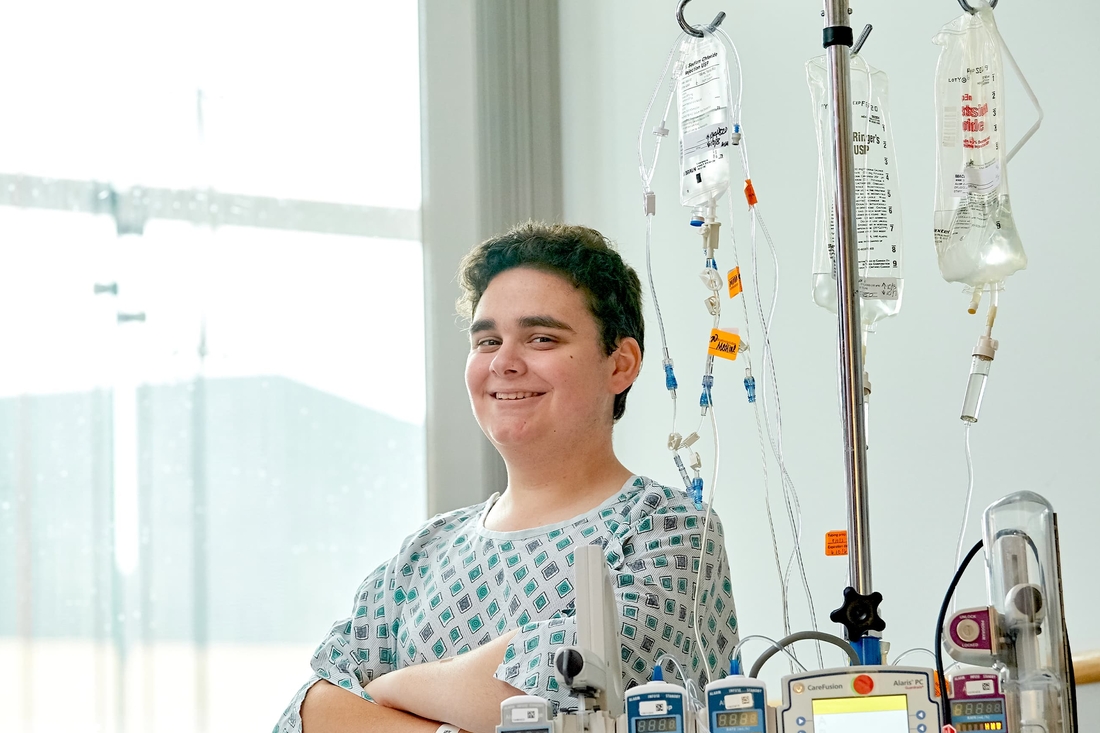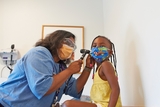Division of Infectious Diseases

For children with both short-term (acute) and long-term (chronic) infectious diseases, the Division of Infectious Diseases at Children's Hospital of Philadelphia (CHOP) provides help with diagnosis and treatment. Our team members are leading experts in medical care, research and education. Our goal: Prevent infection and improve care for children with infectious diseases. Our research helps other hospitals in the United States and worldwide better understand how to prevent, diagnose and treat infectious diseases in children.
We partner with care teams across CHOP, as well as with care teams at the Hospital of the University of Pennsylvania and Penn Medicine as needed. Our Global Health Center provides care, teaching, research and advocacy to promote children’s health and equity in health in low- and middle-income countries.
How we serve you
We care for children in the hospital (inpatient) with suspected or confirmed infectious diseases. Your child may also receive care in one of our outpatient or specialty clinics. For children with complex conditions, we partner with other specialties to coordinate visits, create personalized care plans and monitor progress. We also provide pre-travel counseling.
Common conditions treated in clinic
We care for children with a variety of infectious diseases, including recurrent fevers or infections, mononucleosis, bone and joint infections, fungal infections, and infections in children with compromised immune systems. Common conditions include:
- Bone and joint infections
-
Cold sores (herpes simplex) - Fungal infections
- Infections in children with compromised immune systems
-
Lyme disease and other tick-borne infections - Mononucleosis caused by infections including the Epstein-Barr virus (EBV) and cytomegalovirus (CMV)
-
Pertussis (whooping cough) - Recurrent fevers
- Recurrent strep throat
- Recurrent skin infections
- Tropical infectious diseases
-
Tuberculosis (TB) in children

Meet your team
Our team has advanced training and experience in treating a full range of infectious diseases in children. We make sure your child receives the highest level of care.

Infectious Diseases clinic locations
Find a top expert who treats infectious diseases in children.

Our research
Our division conducts multifaceted research involving the microbiome, immunology and epidemiology, with the purpose of exploring novel therapeutics for pediatric infectious diseases and furthering our understanding of how infections spread.

Division of Infectious Diseases resources
We have gathered resources to give you information and help you find answers to your questions. We hope this makes your family's life a little easier.

Resources for professionals
Everything you need to support your patient’s health, created and updated by our CHOP community of experts.

Your child's first visit
Find out how to prepare for and what to expect at your child's visit to our Infectious Diseases outpatient clinic.
Second opinions for infectious diseases
If your child has an infectious disease and you need help with treatment planning or any other advice, our pediatric infectious disease specialists are here to help.